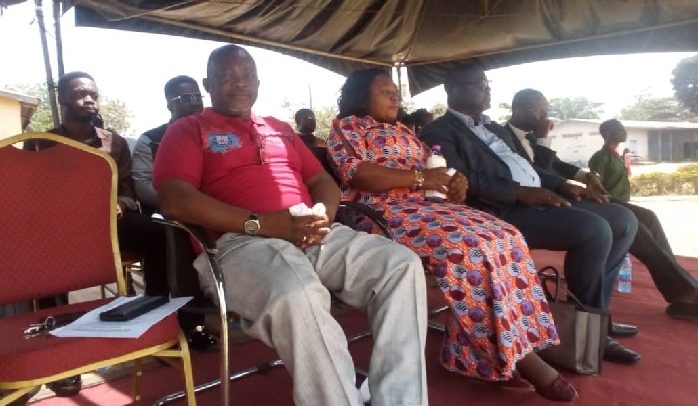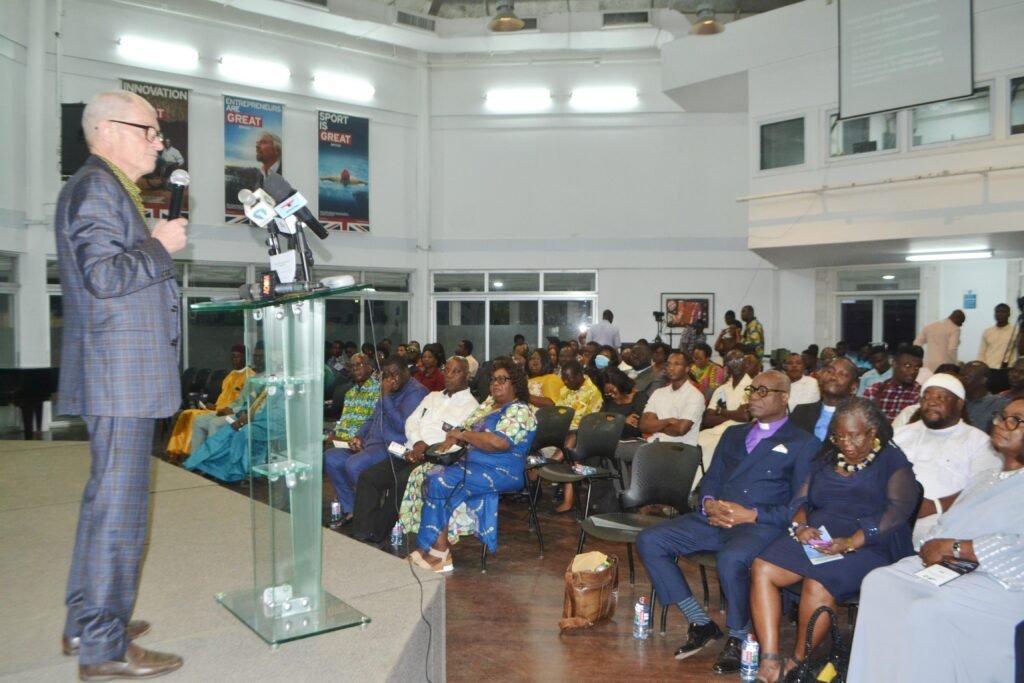
The Institute of Statistical, Social and Economic Research (ISSER) has described the 2019 Budget Statement as ambitious and hope-inspiring.
According to Prof. Peter Quartey, Head, Economics Division, ISSER, the 2019 Budget Statement had shown clearly that outcomes measured against targets for 2018 were mixed, citing Real Gross Domestic Product (GDP) (overall and non-oil as at September 2018) as below target, although end December 2018 estimates might show a higher growth rate.
Prof. Quartey also cited end-of-period inflation at 9.5%, compared to a target of 8.9%.
He said Fiscal deficit (based on both re-based and non-rebased GDP) were within target although the revenue targets were missed.
He said Primary surplus and Gross International Reserves were both within target with Public Debt as a proportion of GDP (rebased) was 57.4% in September 2018, compared to 53.9% the same period in 2017.
Prof. Quartey said public debt had increased by about GHC50 billion within two years, while trade surpluses were recorded in 2017 and 2018, respectively, although the latter was more than double the value recorded in 2017, with exchange rate depreciation for September 2018 at 7.5%, compared to a 4.5 % rate of depreciation against the dollar recorded in 2017?with implications for import duties, cost of doing business and the general cost of living, especially when wages and salaries had not been increased to commensurate with the fall in purchasing power.
Speaking at a news conference on ISSER's assessment of the targets and outcomes of the 2018 Budget Statement and the policy initiatives for 2019 as outlined in the 2019 Budget Statement and their implications for the Ghanaian economy in Accra, yesterday, Monday, December 3, 2018, Prof. Quartey noted that if 70% - 80% of the budget proposals were implemented, a number of jobs would be created and livelihoods would significantly improve.
Prof Quartey added that implementation of the budget proposals was, however, contingent upon developments in the international commodity prices, global financial markets, especially the United States of America and Government's ability to meet domestic revenue targets.
He said the phenomenon of borrowing should be checked because it led to high interest payments?projected to be about 16 billion cedis? which significantly affected the fiscal space left for capital spending.
Monetary indicators
On the monetary regime, he said the indicators pointed to a decline in the monetary policy rate as well as the monetary market rates, with lending rates declining marginally, translating into improvements in credit to the private sector, adding that it was the expectation of ISSER that the additional funds injected into the economy by the 22 banks with the minimum capital requirements would further drive down lending rates and increase lending activities.
Prof. Quartey cautioned Government against acceding to demands for Government's intervention to refund monies lost by customers of other finance houses because that could derail Government's fiscal agenda.
He noted that the exchange rate depreciated by 7.5% in 2018 and that the factors that led to the depreciation still existed and remained a challenge which could be surmounted by reducing the import of rice and other food items through the Planting for Food and Jobs Programme (PFJ) in 2019.
External accounts
On the country's external accounts, he said it looked good, recording trade surpluses in 2017 and 2018 as well as a budget surplus for 2019, but called for the promotion of non-traditional exports.
Agriculture
On behalf of ISSER, Prof Quartey recommended that the PFJ should promote more irrigation and encourage private sector participation in financing the programme.
Industry
He said it was the expectation of ISSER that once many of the factories under the One District One Factory programme became operational, more jobs would be generated, noting, however, that the exchange rate depreciation in 2018 had affected the cost of doing business and might erode the gains of 2019 if not kept within limits.
He said the effective implementation of a set of tax measures and non-tax measures would help in significantly revamping the textiles and garment sectors which, he said, were highly labour-intensive with a strong potential for employment generation.
The services sector
Prof. Quartey noted that initiatives under the services sector would boost transportation, Information Communication and Technology (ICT), education and health.
He noted, however, that the existing funding mechanisms for the Free Senior High School Policy was exerting excessive pressure on the budget and proposed that Government should consider means testing as a way of releasing funds to fund other equally-important sectors.
He said ISSER., therefore, urged Government to consider scaling up the means testing approach used under the (LEAP) and to target those who could not afford SHS education; pay tuition fees and allow parents to pay for the cost of boarding school, while those who could not afford should be given scholarships; and to target Grade C and D Schools, but also resource these schools to make them attractive.
Furthermore, Prof. Quartey said, in order to free resources for Government to fund equally-important sectors, children from poor backgrounds who qualified to enter Grade A and B schools could receive scholarships through means testing.
ISSER, Prof. Quartey said, did not endorse the suggestion that children who attended private schools should proceed to private SHSs, explaining that many localities existed where public schools did not exist and that the number of pupils who attended public basic schools could not fill the country's public secondary schools.
In his remarks, Prof. Felix Ankomah Asante, Director, ISSER, noted that the District Assemblies had great potential for revenue mobilization, adding that the District Assemblies should play a more meaningful role in governance at the local level and be able to embark on initiatives without looking up for central government support or intervention.
Prof Asante said the country could not continue to rely on donor support to stabilize the cedi.
He was disappointed that no figures existed for the unit cost of the FSHS implementation, blamed poor targeting system for being unable to tell who was rich from who was poor and called for the decoupling of the boarding system from the FSHS Policy.
He expressed concern about the challenges, particularly the scarcity of human resource, that would be encountered with the entry into the universities for the first FSHS graduates.
Prof Asante called for the retraining of the youth, adding that Youth Employment Programmes such as NABCO and YEA should be integrated to ensure value for money.
On Good Governance, Prof. Asante stressed the need for all office holders to be held accountable and that institutions should work to stop or prevent corruption.
Source: G.D. Zaney, Esq.
Read Full Story


















Facebook
Twitter
Pinterest
Instagram
Google+
YouTube
LinkedIn
RSS